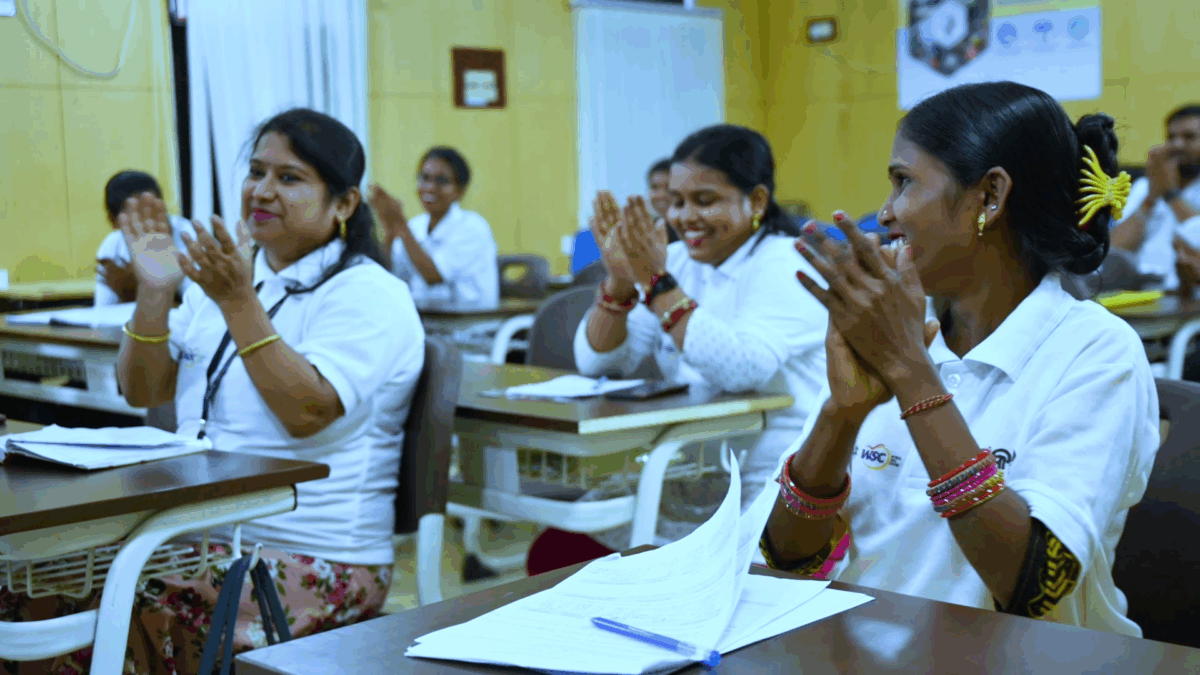Palladium in India is celebrating its 20th anniversary this year. In this feature, the team reflects on their journey, key milestones, and the lasting impact of two decades of work across the country.
Palladium is a global impact firm with nearly 60 years of experience working at the intersection of social impact and commercial growth. Our global network operates in over 90 countries. Since 2004, Palladium has been operating in India, implementing large-scale programs for bilateral agencies such as USAID, FCDO (erstwhile DFID), and others. In 2018, Palladium entered into a joint venture with AP Globale, a Mumbai-based group of companies with Pune as its hub office. Since then, our focus has been on driving positive impact in collaboration with the government, corporations, and the private sector across key sectors in the country.
We have established ourselves through more than 40 projects now across diverse sectors, including agriculture & allied, economic growth, disaster management, urban governance, health, transport & allies, and others. Over the last 3-4 years, we have experienced significant growth, expanding from a 30-member team to a robust and growing team of 150+. Our projects have a presence across 10+ states, with a particular focus on Odisha, Maharashtra, and the Northeast.
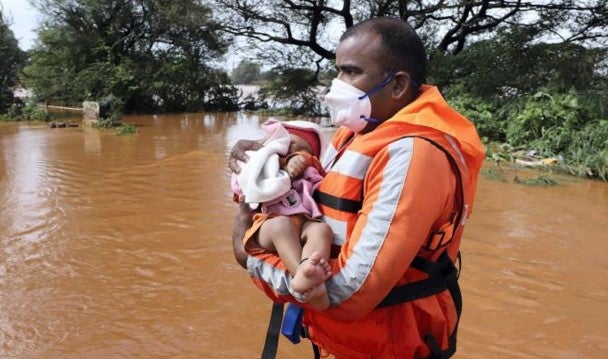
Palladium in India plays a pivotal role in strengthening key sectors and advancing the small and growing business (SGB) ecosystem.
In India, Palladium works in various key sectors such as Agri and Allied, Governance, Transport and Allied, Disaster Management, Health, and Economic Growth. We work with small scale entrepreneurs to enhance their market and business performance and create suitable conditions for their sustainable development. We help SGBs through training, mentorship, industry exposure, credit, and market linkages. This entrepreneurship development covers a wide array of sectors, including handicrafts and handlooms, production & manufacturing, food processing, agriculture, and skin care and beauty. Understanding that the post-pandemic landscape has highlighted the need for narrowing the urban-rural gap and elevating the prosperity of rural communities, Palladium is enabling individuals in SGBs to cultivate diverse skill sets.
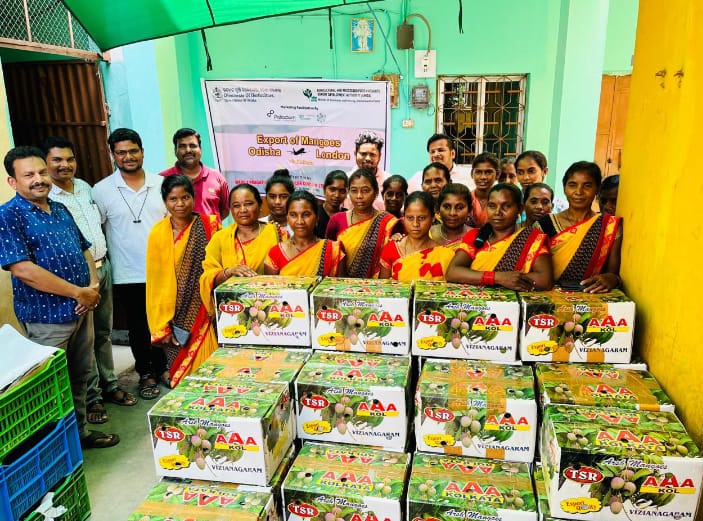
Highlights from some of Palladium’s most impactful programs in India
Like we mentioned, we are focusing on diverse thematic areas leading scaled initiatives by collaborating with state governments, donors, and multilaterals. One remarkable initiative I would like to share is from the economic growth sector, Swakalpa, a two-year self-employment and entrepreneurship development initiative, led by the Odisha Skill Development Authority in partnership with the World Skill Center, Asian Development Bank, and implemented by Palladium in Odisha, India. While much of India’s economic discourse centers around MSMEs, Swakalpa drew focus to the nano entrepreneur—individuals at the very base of the enterprise pyramid who often lack access to finance, training, or networks. It was a 360-degree entrepreneurship model that walked with the entrepreneur every step of the way. The project’s structured approach covered the entire entrepreneurial journey—from mobilization and onboarding to training and long-term mentoring. Community mobilization and entry assessments helped identify motivated candidates, while personalized counseling ensured that the right support was offered from the start. Training modules went beyond the theoretical, blending practical exposure with real-world insights.
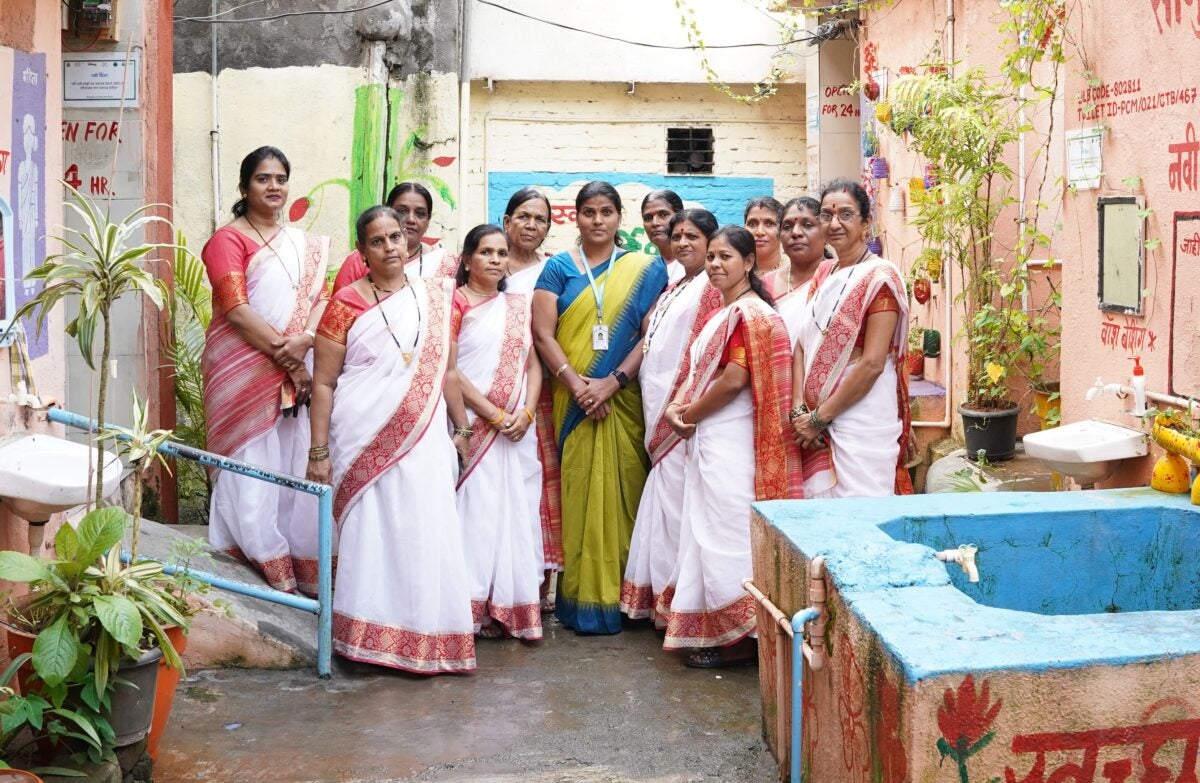
The real differentiator, however, was the 24-week mentorship program. Mentors supported not only the technical aspects—such as documentation, business compliance, and credit access—but also nurtured confidence, resilience, and the entrepreneurial mindset. Mentors played a pivotal role in enabling access to credit and improving financial literacy.
The program organized pitch competitions, market linkage sessions, and Go-To-Market workshops. Entrepreneurs learned how to navigate real-world challenges, build customer trust, and grow sustainably.
Swakalpa’s legacy is not only etched in inspiring stories but in its measurable and meaningful outcomes across the state of Odisha. Over 10,000 young individuals from rural and semi-urban regions—many of them first-generation entrepreneurs—underwent intensive self-employment and business training. Remarkably, 70% of these participants were women, highlighting the program’s strong focus on gender equity. The project led to the formalization of 1,260 micro-enterprises, many of which are now fully compliant, credit-linked, and generating consistent revenue. These businesses have collectively helped mobilize credit worth nearly USD 190,000, unlocking new financial opportunities for underserved entrepreneurs.
The ripple effects have been substantial. In just the past six months, Swakalpa-supported businesses have generated an estimated USD 2.5 to 2.9 million in economic activity, directly contributing to Odisha’s GDP. With proper mentoring, market access, and ecosystem support, this number is projected to grow exponentially reaching between USD 17.6 to 23.4 million over the next three years.
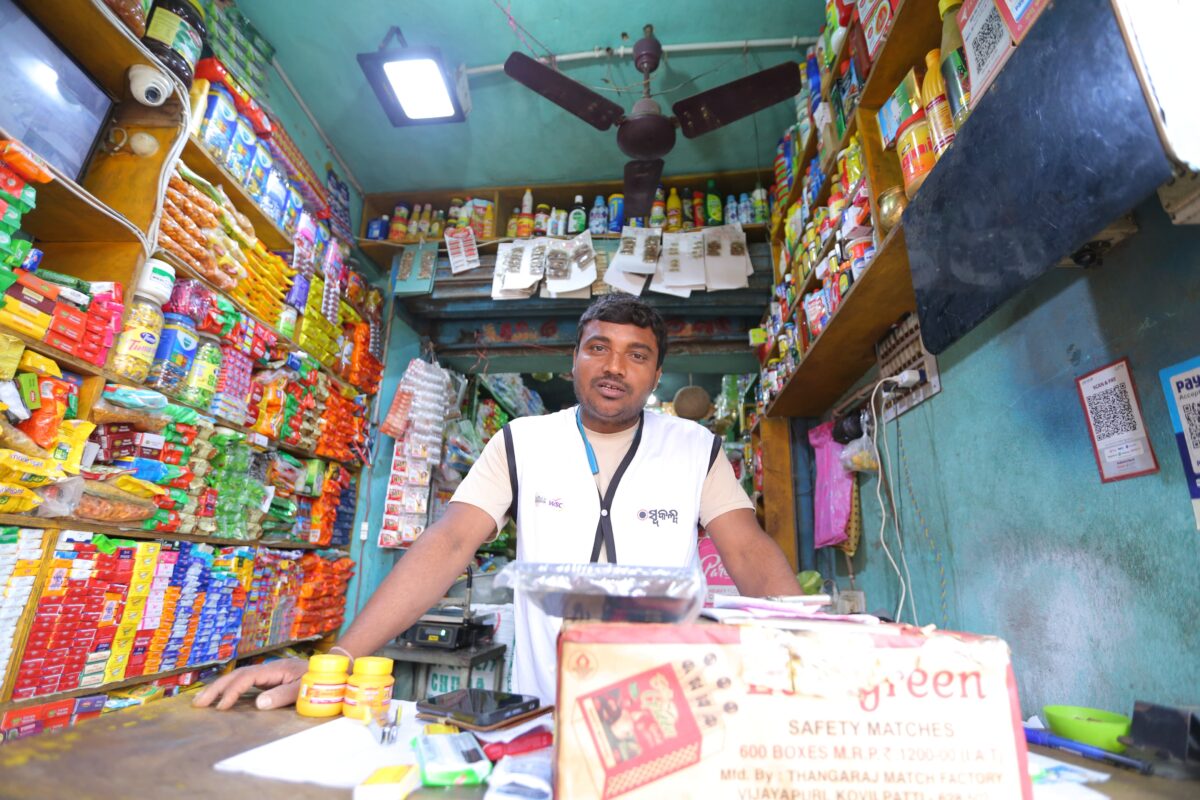
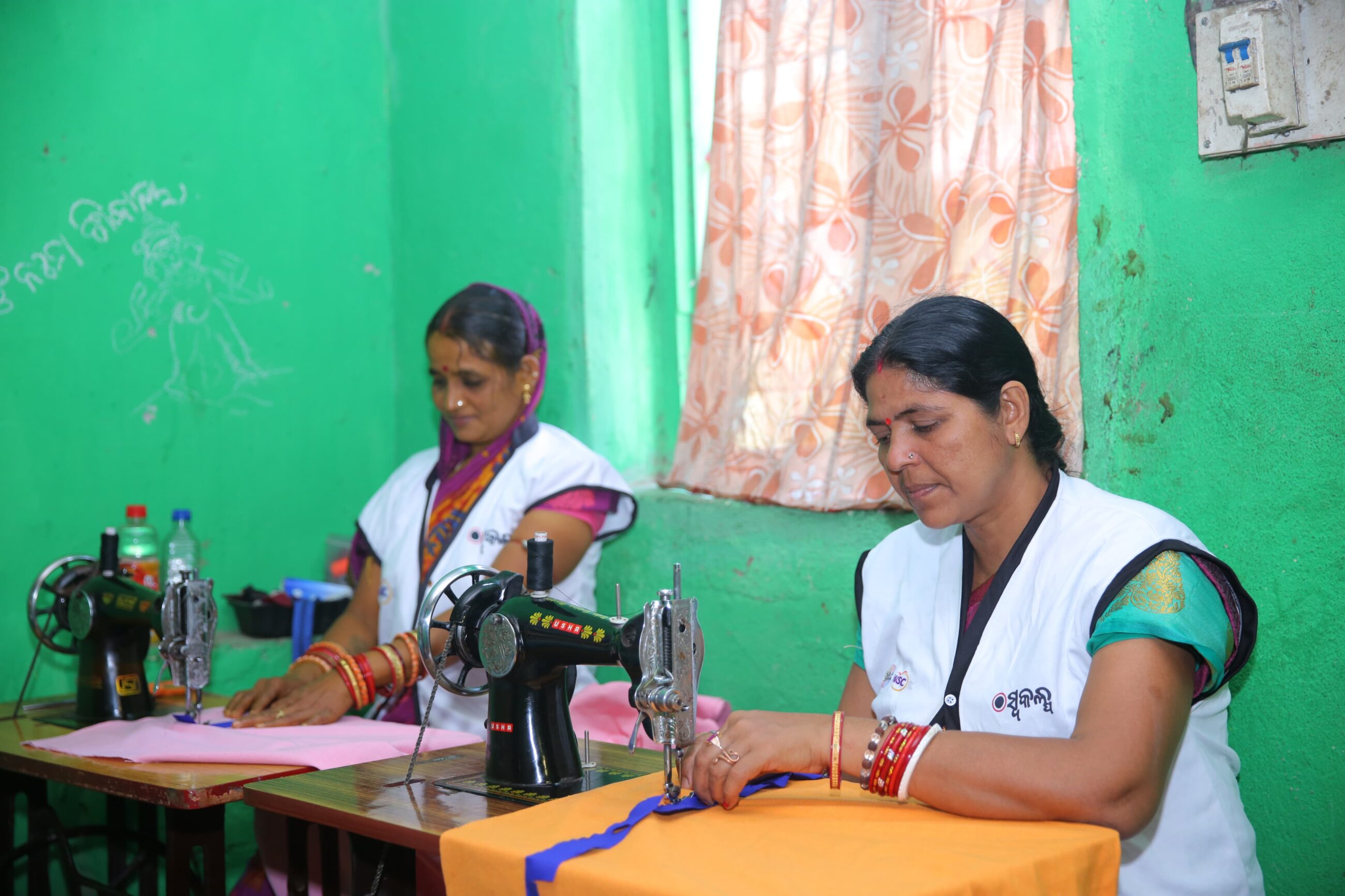
Palladium India offers a unique blend of expertise in strategy execution, implementation capabilities, and its impact measurement, helping clients navigate complex challenges and achieve lasting impact. We combine innovative thinking with practical solutions to drive positive change across sectors. We distinguish ourselves as the delivery partner for our clients focused on achieving the intended outcomes. Our proactive engagement in ecosystem development cultivates a robust network of collaborations, enhancing the overall sustainability and effectiveness of our initiatives. Also, our dedication to rigorous monitoring and evaluation practices underscores our commitment to delivering measurable and enduring results. Our collaborative ecosystem, client and partner focus, and results-oriented philosophy further underscore our position as a trusted Delivery Partner for organizations seeking positive impact.
Palladium’s Partnership with ANDE: Insights and Best Practices for Strengthening SGB Ecosystems
Our collaboration with ANDE illustrates the shared goal of both organizations towards entrepreneurship development. We are working towards solidifying India’s economic growth in the MSME sector by supporting nano entrepreneurs and helping them scale to become micro and macro. We focus on the inclusive growth of these businesses by breaking down barriers that may hinder the entry of individuals, especially those from disadvantaged backgrounds, into the business world. Looking ahead, we continue to focus on empowering SGBs through training, mentorship, industry exposure, and market linkages, thus, narrowing the urban-rural gap and enhancing the prosperity of rural communities.
Based on our experience with driving scaled initiatives empowering SDGs, there are a few best practices to consider. First, we need to not only foster a strong entrepreneurial ecosystem but also create innovative solutions and enhance livelihood opportunities. Making decisions based on robust data ensures initiatives meet real needs effectively. Investing in capacity building for local entrepreneurs through training and resources empowers them for long-term success. Also, inclusivity is crucial, so ensure strategies encompass all community members, from women to the youth. Lastly, integrating eco-friendly practices will promote sustainability and resilience.
